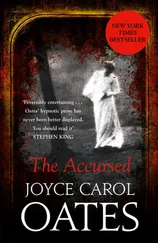Asking Rebecca what on earth was she doing in that hot dusty place, who was she talking to?-and her voice was throaty and cracked and alarmed, and Rebecca turned away blushing and sullen refusing to look up from the dolls as if no one had spoken at all.
Go away! Go away Freyda and I don’t need you .
But Monday was laundry day, and both girls were eager to help.
For Anna Schwart did not leave the stone cottage often, and this was a special time. She would tie a scarf hurriedly around her head to partially hide her face. On even very hot days she would wear one of Herschel’s jackets over her shapeless housedress. So that if someone was spying on her (from the cemetery, from behind the crumbling stone wall) they could not see her clearly. Jacob Schwart had tried to shame his wife out of such eccentric behavior, for cemetery visitors certainly noticed her, shook their heads and laughed at the gravedigger’s crazy wife, but Anna Schwart ignored him for what did Jacob Schwart know for all his radio-listening and newspaper-reading he knew nothing about their Milburn neighbors. She knew.
Yet the laundry had to be washed in the old washing machine in the shed, and the soaking-wet clothes pressed through the hand-wringer, and placed in the wicker basket, and the basket had to be hauled out into the backyard, into the bright sunshine and gusty air. And Rebecca helped carry the basket. And Rebecca and Freyda handed Ma things from the basket to be pinned on the old rope clothesline tied between two posts to flap and slap and clapclapclap on windy days. Rebecca made Freyda laugh by pulling an undershirt over her head when Ma’s back was turned, or letting a pair of shorts fall into the grass accidentally-on-purpose like they’d squirmed out of Rebecca’s hands, but Freyda took away the undershirt and the shorts to hand to Ma for Freyda was a good girl, Freyda was a serious girl, often Freyda put her forefinger to her lips Shhhh! when Rebecca was being loud or silly.
In Rebecca’s bed, they snuggled and cuddled and hugged and sometimes tickled. Rebecca slid Freyda’s warm bare arm across her side, over her ribs to snuggle closer so Rebecca could sleep not hearing Pa’s radio voices in the night.
Oh, that delicious swoon of a dream: Rebecca and her new sister Freyda walking to school together in matching jumpers and shiny patent leather shoes along the Quarry Road, and along the Milburn Post Road, a mile-and-a-half walk it was to the Milburn Grammar School, and they would be hand in hand like sisters. And they would not be afraid because there were two of them. Except Ma had been saying this year was too soon, she would not let Rebecca go yet. I want my little girl safe with me long as I can . Pa said that Rebecca would have to go to school, she would have to start first grade, why not this year since she knew her ABC’s and numerals and could almost read, but Ma insisted No . Not yet . Not for another year . If they come to ask us we will say that she is too young, she is not well, she coughs and cries all the time .
But Rebecca thought: Freyda will be with me now. And Elzbieta.
The sisters would all walk to school together.
Rebecca felt a thrill of triumph, her mother would not be able to prevent her now.
How strange it was that in those weeks of July 1941 there was such excitement in the stone cottage like the humming of bees in the powdery snakeroot flowers you were not supposed to play near for you would be stung, and a sickish sensation beneath like running faster and faster down a hill until you are in danger of falling yet the name Morgenstern was rarely spoken and then only in whispers. By Morgenstern was meant adults as well as children yet Rebecca gave not the slightest thought to her cousins’ parents. Freyda! was the only name she cared for. It was as if the others even Elzbieta and Joel did not exist. Especially the adults did not exist.
Or, if these Morgensterns existed, they were but strangers in photographs, a man and a woman in a setting drained of all color, beginning to fade like ghosts.
And so they waited, in the caretaker’s stone cottage just inside the front gates of the Milburn cemetery.
And so they waited patiently at first and then with increasing restlessness and anxiety through the second half of July, and into the terrible damp heat of early August in the Chautauqua Valley.
And the Morgensterns who were Anna Schwart’s relatives did not come. The uncle, the aunt, the cousins did not come. Though the cottage had been prepared for them, the woodshed cleared out, curtains hung at windows, they did not come. And there was a day, an hour, when at last it was clear that they would not be coming, and Jacob Schwart drove into Milburn to make telephone calls to ascertain that this was true.
“Ask God why: why such things happen. Not me.”
There was the voice of her father, that pierced her heart in its fury, and shame.
It made her feel faint, dazed as if the very floorboards tilted beneath her bare feet, to hear his voice in this way. Yet there was a curious exhilaration in his voice, too. A kind of relief that the worst had happened, he’d anticipated from the start. He had been right, and Anna had been wrong, to have hoped.
“Turned back! Nine hundred refugees turned back, to die.”
Above the roaring in her ears and the panicked beat of her heart Rebecca heard her parents in the kitchen. Her father’s words that were sharp and distinct and her mother’s that were not words but sounds, moans of grief.
The shock of hearing her mother crying! Choked ugly sounds like an animal in pain.
Rebecca dared to push open the door a crack. She saw only her father’s back, a few feet away. He wore a shirt soaked through with sweat. His hair was graying and straggled past his collar, so thin at the top of his head that his scalp showed through like a pale glimmering sickle-moon. He was speaking now in an almost calm voice yet still there was the exhilaration beneath, the obscene gloating. For now he had no hope, he would have no hope. The hope of the past weeks had been lacerating to Jacob Schwart, who wished for the worst, that the worst might be over with, and his life over. Rebecca was a child of only five, and yet she knew.
“Why not kill them on the ship, set the ship on fire? In New York harbor, for all the world to see? ”This is the fate of the Jews.“ It would be mercy for these Christians, eh? Hypocrite bastard Roosevelt may his soul rot in hell, better to kill them here than send them back to die like cattle.”
Desperately she wanted to run past her father to her mother yet she could not, Jacob Schwart blocked her way.
Unconsciously Rebecca reached for Freyda’s fingers. Since the evening the photographs had been spread across the kitchen table she had not been apart from Freyda. You would not see one of the sisters without the other! Rebecca and Freyda were of a height, their hair plaited in the same way and their eyes identical dark-shadowed eyes set deep in their sockets, watchful and alert. Yet now, Rebecca reached for Freyda’s fingers, and felt only air.
She could not now turn to see Freyda pressing a forefinger against her lips Shhhh Rebecca! because Freyda herself was air.
Rebecca pushed the door open, and entered the kitchen. She was barefoot, and trembling. She saw how her father turned to her with a look of annoyance, his face flushed, livid eyes that held no love for her in that instant, nor even recognition. She stammered asking what was wrong? where was Freyda? wasn’t Freyda coming?
Her father told her to go away, out of here.
Rebecca whimpered Ma? Ma? but her mother paid no heed to her, turned away at the sink, sobbing. Her mother’s chafed hands hid her face and she wept without sound, her soft slipping-down body shaking as if with merriment. Rebecca ran to her mother to tug at her arm but Pa intervened, grabbing her hard. “I said no .”
Читать дальше












